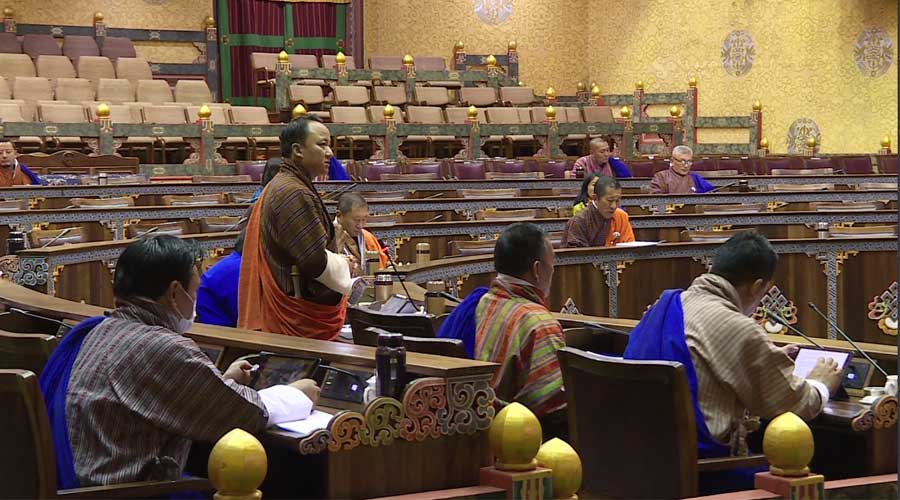
Finance Minister Namgay Tshering tabled the Tax Bill 2022 in the National Assembly today. According to the minister, the Bill is expected to not only ease the shortage of foreign currency reserves but also promote the local priority sector. All cottage and small industries such as wood-based industries come under the local priority sector.
Introducing the Tax Bill in the House, Lyonpo Namgay Tshering said the Bill seeks to promote the local priority sector and lower taxes on essential commodities such as rice and cooking oil.
On the flip side, the Bill proposes to increase taxes on goods which are harmful to health and the environment.
“We haven’t imposed extra taxes on harmful products to date. Besides alcohol and cigarettes, there are other foods like noodles, pasta and edibles made from sweets, which are harmful to one’s health,” shared the Finance Minister in the house.
Due to these edibles, the number of non-communicable diseases like diabetes, heart disease, stroke and blood pressure is ticking upward, added the minister.
“To discourage people from consuming these food items, we will have to adjust their prices smartly,” asserted the Finance Minister.
However, some parliamentarians suggested aligning taxation policy with economic development as crucial. If this goes haywire, the public will be the most affected.
“What I feel is if the policies related to tax and economic development are not aligned and do not go well together, then the general public will be affected at large. If we increase the import costs and people are unable to afford goods, at last people will be affected,” said MP from Bartsham-Shongphu constituency in Trashigang, Passang Dorji (PhD).
“It is good that we should support local products by levying high taxes on imported goods. But do we have enough local products within the country? I don’t think so. We have seen local entrepreneurs struggling to create a niche in the market. We should think this as well,” said Dramedtse-Ngatshang MP from Monggar, Ugyen Wangdi.
After much deliberation, the Tax Bill was handed to the Economic and Finance Committee as a “Money Bill” for further review.
Why Money Bill?
According to legal experts, anything to do with imposition, abolition, reduction and remission of existing taxes is termed a “Money Bill.
Also, any expenditure met from the government fund has to be approved by the parliament as Money Bill.
Unlike any other bill, Money Bill has to be passed during the same parliament sitting in which it was introduced.
The National Assembly and National Council enjoy the same legislative authority on any Bills. However, when it comes to Money Bills, the former has the upper hand. This is because it has ruling and opposition parties, say legal experts.
In the meantime, the committee will review the Bill and present it in the House at later date.
Passang Dorji
Edited by Pema Lhaden








